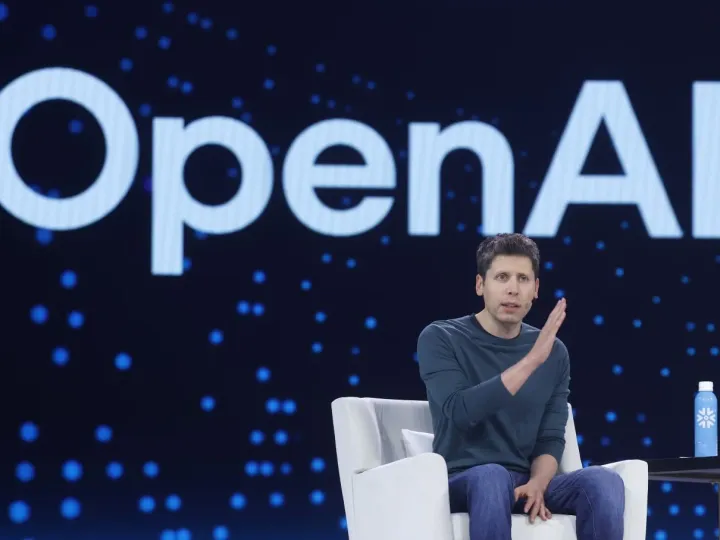Forget the Hype—Nandan Nilekani’s Real Talk on AI, Trust, and India’s Big Opportunity

Nandan Nilekani’s 5-Point Reality Check on AI: Why It’s Tough, Why Trust Matters, and Why India Can Win
Artificial Intelligence is everywhere—promising to revolutionize work, education, healthcare, and even how we make decisions. But according to Nandan Nilekani, co-founder of Infosys and a key architect of India’s digital transformation, the AI revolution isn’t as simple as it seems.
Speaking at the Carnegie India Global Tech Summit in New Delhi on April 11, Nilekani delivered a grounded take on the future of AI. His insights go beyond the hype, focusing on the challenges of scaling, the trust gap in machine decisions, and India’s surprising advantage in global AI adoption.
Let’s break down his five key insights.
- Scaling AI Is Much Harder Than It Looks
Despite the rapid pace of AI development, building AI that works at scale is full of delays and complications.
“We are facing challenges in building AI at scale and making it work for everyone,” Nilekani said.
According to him, the roadblocks aren’t just technical—they’re political, institutional, and even personal. Internal power dynamics, conflicting priorities, and the human factor make scaling AI a slow and often frustrating process.
This is a stark contrast to the sleek demos and promises we often see from AI companies. In reality, building AI systems that are reliable, safe, and scalable for millions of users is a tough job.
- Trusting Machines Is a Giant Leap for Humanity
One of Nilekani’s most thought-provoking points was about trust. He argued that the biggest shift AI brings is not technical—but philosophical.
“For the first time in human history, we intend to place trust in non-human intelligence for decision-making,” he said.
Earlier, technology was predictable and rule-based. Now, AI is being used in areas where judgment and context matter—like healthcare, hiring, finance, and law.
Nilekani called this a “huge leap of faith”—we are asking people to believe in invisible, data-driven systems that they don’t fully understand. This creates a trust gap that must be addressed before widespread adoption can happen.
- Enterprises Struggle More Than Consumers
Another eye-opener: AI adoption is easier in consumer tech than in enterprise systems.
Why? Because consumers are more forgiving.
“Enterprises must ensure they don’t provide incorrect answers since their brand reputation is at stake,” Nilekani explained.
Even a 1–2% error rate in AI responses can damage trust in a brand. That’s why many companies are hesitant to deploy AI tools unless they’re nearly perfect.
In contrast, consumers might tolerate occasional mistakes—especially if the AI tool is free or entertaining.
So, while chatbots and virtual assistants may feel mainstream, true enterprise-level AI integration is still lagging behind.
- AI Should Empower, Not Replace, People
Nilekani was clear on one thing: AI is not about replacing humans—it’s about enhancing them.
“AI is not about dumbing people down,” he said. “It’s about improving human capability, capacity, and potential.”
He pointed to promising examples in agriculture, where Indian states are building open digital networks. These platforms let farmers access vital crop and weather information in local languages, improving their productivity.
This vision of AI is human-first—where technology is used as a tool for empowerment, not a threat to jobs.
Nilekani’s message counters the widespread fear that AI will lead to massive unemployment or human irrelevance.
- India Can Leap Ahead in Global AI Adoption
Here’s the most optimistic part of Nilekani’s speech: India could adopt AI faster than the rest of the world.
Why? Because of the digital groundwork laid over the past 15 years—things like:
- Aadhaar, the world’s largest biometric ID system
- UPI, which transformed digital payments
- DigiLocker, for secure online document storage
- Public digital infrastructure in healthcare, education, and agriculture
“We expect AI adoption to take 10–15 years globally, but in India, it can happen much faster,” Nilekani said.
India’s digital maturity, combined with a young, tech-savvy population, puts it in a unique position to leapfrog traditional stages of AI deployment.
Instead of waiting for Western models, India can create its own AI use cases, especially in areas like rural services, healthcare delivery, and multilingual tools.
The Bigger Picture: What Nilekani’s AI Vision Means
Nandan Nilekani isn’t just another tech evangelist—he’s someone who has shaped India’s digital backbone. His cautious yet hopeful take on AI serves as a reality check for policymakers, businesses, and citizens.
Here’s what we can take away from his vision:
- Scaling AI is a human challenge, not just a technical one
- Trust in AI is not automatic—it must be earned
- Enterprises need high accuracy to protect their reputation
- AI should support people, not replace them
- India has the infrastructure to lead in AI adoption faster than most nations
As India gears up to integrate AI into its public and private sectors, Nilekani’s message is clear: Let’s be ambitious, but also responsible.
TL;DR: Nandan Nilekani’s 5 Big Takeaways on AI
- Scaling AI is difficult due to delays, politics, and human dynamics
- Trusting AI for decision-making is a radical new shift
- Enterprises struggle more than consumers with AI adoption
- AI should enhance, not replace, human capabilities
- India could adopt AI faster than expected, thanks to its strong digital base



